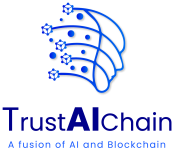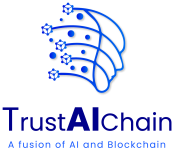Understanding the Bias
One of the most insidious forms of bias in hiring manifests when candidates are evaluated based on their names or perceived racial identities. Studies have consistently shown that candidates with ethnic-sounding names face significant discrimination in the hiring process. For instance, a National Bureau of Economic Research study found that job applicants with African-American-sounding names received 50% fewer callbacks than those with white-sounding names despite identical resumes. This sobering reality underscores the prevalence of racial biases lurking within HR technology.
Gender inequality is a persistent problem in the job hiring process, despite progress towards equal rights. Studies show recruiters may even unintentionally favor male candidates. This can be due to stereotypes linking specific jobs to masculinity or femininity or simply a tendency to feel more comfortable with someone similar to themselves.

Statistics Reflecting Bias in Hiring
The statistics paint a stark picture of the challenges faced by job applicants in the USA. According to research conducted by the National Employment Law Project, African American and Latino job applicants are significantly less likely to receive callbacks or job offers compared to their white counterparts, even when controlling for factors such as education and experience. Similarly, studies by the Harvard Business Review have highlighted the existence of implicit biases in hiring processes, with hiring managers often unconsciously favoring candidates who share their racial or cultural background. These statistics underscore the urgent need to address bias in HR technology and promote fair and equitable hiring practices.
Additionally, emerging data reveals the detrimental impact of biased AI algorithms on job seekers. According to a report by the AI Now Institute, an alarming number of qualified candidates remain jobless due to biases embedded in AI-powered hiring systems. These biases perpetuate systemic inequalities, disproportionately affecting marginalized communities and perpetuating cycles of unemployment and economic disparity. It also underscores the urgent need to address bias in HR technology and prioritize fairness and equity in hiring processes.
The Importance of Merit-Based Hiring
In any fair and equitable hiring process, merit should always precede irrelevant factors such as race or ethnicity. It is crucial to recognize that recruitment aims to identify the most qualified candidates who can contribute to the organization’s success, irrespective of their demographic background. By focusing on qualifications, skills, and experience, organizations can create a meritocratic hiring process that promotes diversity and inclusivity.

Removing Biased Data Points
To mitigate bias in hiring processes, organizations should take proactive steps to remove biased data points from their recruitment strategies. This includes eliminating checkboxes on job application forms that inquire about race, ethnicity, age, sex, or other irrelevant demographic information. By removing these data points, organizations can prevent unconscious biases from influencing hiring decisions and ensure that candidates are evaluated based solely on their qualifications and merits.
Promoting Diversity and Inclusion
Diversity and inclusion should be a cornerstone of every organization’s hiring strategy. By actively seeking out diverse talent and creating inclusive work environments, organizations can harness the collective strengths and perspectives of employees from different backgrounds. This enhances creativity and innovation and fosters a culture of equality and belonging.
Mitigating bias in HR technology requires a multifaceted approach that combines innovative technologies with proactive measures to promote diversity and inclusion. One promising solution is integrating well-trained, transparent AI algorithms into hiring. Transparency is vital to building trust in AI-powered hiring systems. Organizations should prioritize transparency in their AI algorithms, providing clear explanations of how decisions are made and ensuring that the underlying data used for training is diverse and representative. Additionally, blockchain technology can enhance transparency and accountability in the hiring process by securely storing and tracking candidate data, reducing the risk of bias and discrimination.
By leveraging machine learning techniques, AI can help identify and mitigate biases in candidate evaluation, ensuring that hiring decisions are based on merit rather than irrelevant factors such as race or ethnicity.

In summary
In conclusion, bias in HR technology poses a significant challenge to fair and equitable hiring practices. From racial biases triggered by ethnic names to systemic discrimination embedded in application forms, the impacts of bias are far-reaching and pervasive. We must prioritize merit-based hiring and remove biased data points from recruitment strategies. By focusing on qualifications, skills, and experience, organizations can create a level playing field for all candidates, regardless of race, ethnicity, or other demographic characteristics.
However, by embracing innovative solutions such as well-trained, transparent AI bolstered by blockchain technology, organizations can mitigate bias in hiring processes and promote diversity and inclusion in the workforce. We must build a future where all candidates are evaluated based on their skills, qualifications, and potential rather than irrelevant factors such as race or ethnicity. Only then can we create a level playing field for all job applicants in the USA and beyond.







